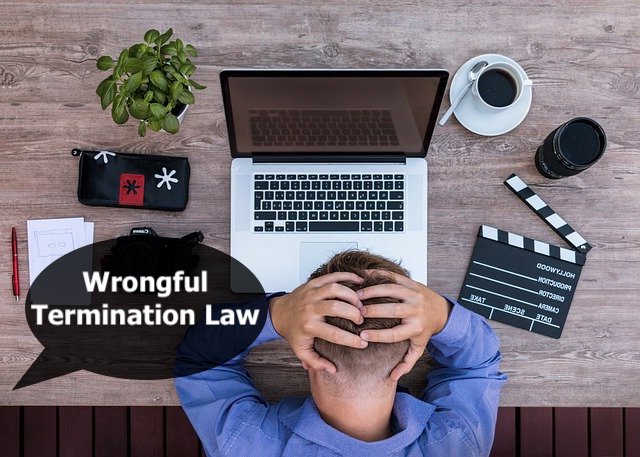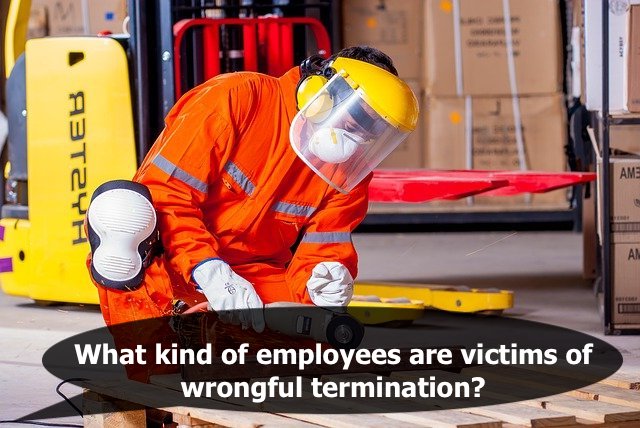Are you looking for a free wrongful termination lawyer for a consultation?
Call or Request a Consultation Online Today with your #1 Wrongful Termination Lawyers for a free consultation with Stevens & McMillan! We are open Monday through Friday 9 am to 5 pm!
Wrongful termination law is often misunderstood. And a professional group of wrongful termination lawyers can go a long way toward understanding your rights. The starting point in California’s wrongful termination law is that California is an at-will employment state. This means that an employee can quit his or her job at any time. Also can be terminated at any time.
An employee can be terminated for a good cause, such as stealing or not performing his or her job correctly. An employee can also be terminated for no cause, such as if your boss simply doesn’t want to work with you anymore because your boss doesn’t like working with you. Call Stevens & McMillan, your Orange County Lawyer, for aid in all matters of Employment Law at (800) 738-3353.

Can an employee legally be terminated for a bad cause?
However, an employee cannot legally be terminated for a bad, or in other words illegal, cause. Wrongful termination occurs when an employee is terminated based on a reason that is protected. For example, you cannot be terminated because you are:
- Hispanic (ethnicity)
- Chinese (national origin)
- Indian (race)
- Male/female (gender)
- Pregnancy/maternity leave (gender)
- Handicapped (disability)
- Jewish (religion)
- Complaining about a state or federal law violation (whistleblower retaliation)
- Over 40 years old (age)
- Family/medical leave (Family Medical Leave Act)
- Unwilling to engage in sexual acts with your boss/employer (quid pro quo sexual harassment)
- Complaining about not being paid wages (wage dispute)
- Rest, break, or mealtime violations
- Injured on the job/filing a workers’ compensation claim (workers’ compensation)
- Homosexual/heterosexual (sexual orientation)
- Join a union (National Labor Rights Act)
- Libertarian (political affiliation)
- Protesting unsafe work conditions (whistleblower retaliation)
- Time off for jury duty/appearing in court under subpoena/seeking a restraining order for domestic violence (Labor Code 230)
- Time off to vote (Elections Code 14000)
This list is just an example and there might be other illegal reasons which are not included herein. If you have suffered a wrongful termination then you need a free consultation with a wrongful termination lawyer. Stevens & McMillan is ready to discuss the wrongful termination law with you and advise you on your wrongful termination rights under the wrongful termination law. Please contact our wrongful dismissal lawyers consultation free, Stevens & McMillan at (800) 738-3353 for a free consultation regarding your wrongful termination claim. This article has only touched on the general scope of the law and is for information purposes only. This article is not intended to give legal advice.
Call our Wrongful Termination Lawyer for Free Consultation (800) 738-3353
What kind of employees are victims of wrongful termination?
California employees are at will. California employees are considered strong at-will employees. This is unlike other states. California is an “at-will” state. This means that employees can be fired or dismissed for any reason. Your boss might tell you, “Hey, you annoy us and I can’t bear the sight of you.” This would be legal as long as the termination wasn’t based on illegal grounds.
It is difficult to determine whether your employer fired you for illegal reasons. Not every employer will say, “I don’t want you working here due to your ethnicity” or “We are letting You go because you are female”. There are exceptions but it won’t always be the case. An employment lawyer will usually look at the key features surrounding termination to determine if discrimination or a wrongful termination occurred
California law protects several groups from being fired because of their class affiliation. Five types of classes will be discussed in this article.
- The New Mom
A woman may be able to sue the employer for being fired or denied employment if she is not satisfied with their decision. A woman may be able to file wrongful termination claims if she is fired because she is pregnant. Another example is a woman who was fired because she believed or knew that she was pregnant could have a discrimination claim against the company.
Interestingly, the claim of being fired because a woman was pregnant has many complicated rights. After a woman requests medical leave, an employer can discriminate against her and terminate her employment. Although the employer might argue that the employee was terminated because she took leave, an employee or former employee could claim that she was fired because she was pregnant. This could be considered discrimination and wrongful termination.
The father of a soon-to-be-born child may have the right to take time off to care for and visit the mother. The father may also be entitled to leave the child’s mother after birth. He may also be able to claim against his employer if he is fired or used the time off.
- The Woman or the Man
No matter what gender or sexual orientation an employee is, they may be subject to workplace discrimination. An employee might feel unsafe at work because of bullying or teasing from their coworkers, or even their superiors. This could be especially true if the employee is female, or male, or decides to remain gender-neutral. A person may file a claim against an employer if they are subject to name-calling or denied employment benefits. Employees have the right to feel safe at work. An employee who feels they are being treated unfairly at work because of their gender or sexual orientation may have a discrimination claim. If the discrimination results in an employee losing their job, that could be another claim for wrongful termination.
3. The Over 40
Friends and family will often make funny comments about your birthday, such as “Over the hill” and “Old geezer”. What happens if your boss makes comments about your age? California law protects employees over 40 from being fired because of their age. If Bob worked for more than ten years in his job, and his boss decided to let him go on his 50th birthday because “it was time for someone with a younger outlook”, Bob could have a claim for discrimination or wrongful termination.
4. People with a disability
Employers and potential employees with a disability are protected under employment law. Employees with disabilities should be given the same opportunities for employment as other employees. A person with a disability should not be denied employment if he or she is capable of performing the role with reasonable adjustments.
After being hired, some employees might develop a disability. The employer must accommodate the employee’s request within reasonable limits. An employer may be sued for discrimination or wrongful termination by terminating an employee who requests an accommodation.
5. Race
Race discrimination is when employees are treated differently than other employees because of their race. If other employees are of the same or perceived race as the employee being targeted, it is a sign that they are being treated unfairly at work. It can take the form of bullying, teasing, reductions in shifts, denials of promotions, or even termination.
If a pregnant employee steals money from her company, her pregnancy doesn’t protect her from the consequences.
Contact a wrongful termination lawyer such as Stevens & McMillan Employment Lawyers for more information.
Question and Answer
What behaviors are considered criteria for a hostile work environment?
Behaviors that can contribute to a hostile work environment typically involve repeated, severe, or pervasive mistreatment or harassment based on a protected characteristic. Here are some common behaviors that may contribute to a hostile work environment:
- Harassment: This includes any unwelcome conduct based on a protected characteristic, such as race, gender, religion, national origin, age, disability, or sexual orientation. It can manifest through offensive jokes, slurs, derogatory comments, or displaying offensive material.
- Discrimination: Treating employees differently or unfairly based on their protected characteristics can contribute to a hostile work environment. This may involve biased decision-making in areas such as hiring, promotions, assignments, or compensation.
- Intimidation or Threats: Creating an atmosphere of fear, intimidation, or threats can contribute to a hostile work environment. This can include verbal or physical aggression, bullying, or actions that undermine an individual’s sense of safety and well-being.
- Offensive or Abusive Language: The use of offensive, derogatory, or abusive language directed at individuals or groups based on their protected characteristics can contribute to a hostile work environment. This includes profanity, slurs, or degrading comments.
- Exclusion or Isolation: Deliberately excluding or isolating individuals based on their protected characteristics can contribute to a hostile work environment. This can involve social exclusion, withholding important information or opportunities, or creating a climate of exclusionary practices.
- Retaliation: Taking adverse actions against individuals who report or oppose discrimination or harassment can create a hostile work environment. Retaliation can include negative performance evaluations, denial of promotions, or creating a hostile atmosphere in response to protected activities.
- Unwanted Physical Contact: Engaging in unwelcome physical contact, such as touching, groping, or other forms of physical intimidation, can create a hostile work environment.
It’s important to note that the specific criteria for a hostile work environment may vary depending on local laws and regulations. It’s recommended to consult with legal professionals or HR experts to understand the specific criteria applicable to your jurisdiction.
Call illegal termination lawyers toll-free at (800) 738-3353 for a FREE CONSULTATION with NO RECOVERY – NO FEE (No Up-front Costs, Fees, or Charges) if you feel like your rights may have been violated. Contact via email
Wrongful termination lawyer free consultation toll-free (800) 738-3353
Monday – Friday 9:00 am to 5:00 pm




